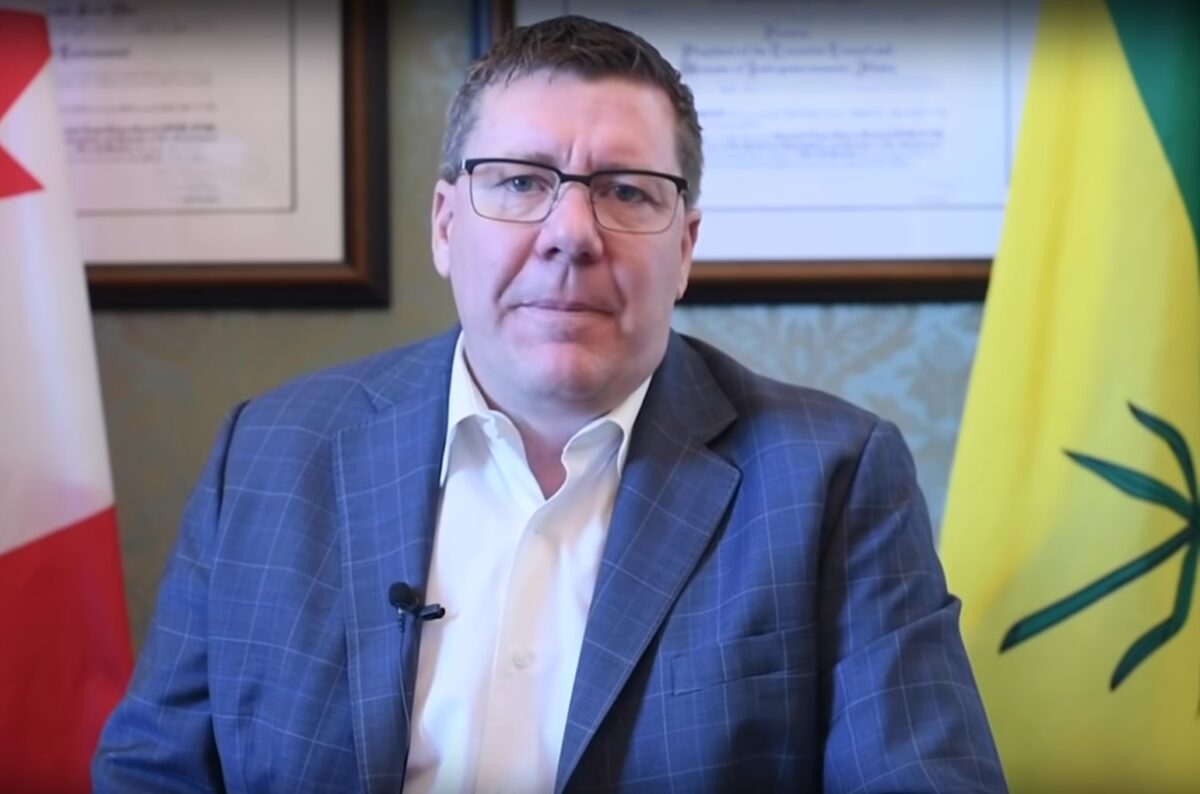On August 22, Saskatchewan Premier Scott Moe and Education Minister Dustin Duncan announced new policies for schools that specifically target 2SLGBTQIA+ students. In the press release, Saskatchewan schools are now required to “seek parent/guardian permission when changing the preferred name and pronouns used by students under the age of 16 in the school.”
Duncan’s announcement was packaged with two other policies. The first requires parents to be informed about the sexual health curriculum “and have the option to decline their children’s participation.” The other requires boards of education to sever ties with third-party organizations “connected to sexual health education.”
A new low
The Canadian Civil Liberties Association (CCLA) condemned the move to require permission from parents to change names or pronouns in a press release, stating they will take legal action to protect student rights in the province.
“The new policy violates the rights and dignity of 2SLGBTQIA+ young people and is not in the best interest of students,” the statement said. “We have seen all too often what happens when students are outed at home. Some unsupportive families have kicked their kids out of the house or resorted to physical violence.”
Fae Johnstone, president of Momentum, a non-profit focused on 2SLGBTQIA+ advocacy, said that she is “appalled and disgusted” by the new policy from Moe and Duncan.
“[They’re] playing politics with the safety, dignity and inclusion of vulnerable trans students,” Johnstone said.
Johnstone pointed to the representation of 2SLGBTQIA+ youth in the homeless population, which is estimated to be between 25 and 40 per cent, as evidence of the violence that queer youth face when put in unsafe home situations.
“These policies, what they do in practice, is force kids who are not safe to be out or not ready to be out at home, it denies them spaces to be themselves and to be supported at school,” she said.
“This is also likely to put teachers, principals and others who are in regulated professions in a nasty bind because many of these professions have codes of conduct at work that entrench support to vulnerable communities and a commitment to human rights,” she added.
Carla Beck, leader of the Saskatchewan NDP, released a statement on X (formerly known as Twitter) condemning the move, calling the policy “a new low.”
“What we saw today from this government was calculated policy to solve their own political problems. Policy that will put already vulnerable kids at greater risk,” said Beck.
NDP MLA for Regina University Aleana Young was more direct, calling Moe and Duncan “f*ing cowards.”
Spreading anti-trans legislation
Duncan and Moe’s announcement mirrors similar moves earlier this year by Blaine Higgs, New Brunswick’s Conservative premier. Higgs updated a provincial educational policy to deny the request of any child under the age of 16 to change their pronouns or name without explicit parental consent. Higg’s policy took effect on July 1.
READ MORE: Blaine Higgs hates trans kids more than he loves his own
The move caused an uproar, with resignations from within Higgs’ party, and sharp criticism from federal politicians. New Brunswick Child, Youth and Seniors’ Advocate Kelly Lamrock filed a report that found the update violated the human rights of children. The CCLA found that the provincial policy was unconstitutional.
Johnstone pointed to the two provincial policies as extensions of similar anti-trans legislation and sentiment in the US.
“I think this is conservative premiers who are struggling to be successful premiers, and whose governments are struggling, using trans kids as a distraction to their leadership failures,” Johnstone said.
Johnstone added that while legal challenges are “a powerful tool” in regards to these policies in SK and NB, the fight for equality extends outside legal rights.
“They’re never guaranteed, so we need to be putting time and energy into the public opinion side of this battle,” Johnstone said. “We need folks to understand why trans kids deserve to be supported and respected in their schools. So I think the legal intervention is viable, but it can’t be our only intervention.”
Trans youth need support, not marginalization
OUTSaskatoon, an organization that provides resources and support for 2SLGBTQIA+ people in the city and surrounding area, provided a statement to rabble in support of youth affected by this new policy.
“Whether children, youth, families, and staff choose to stay closeted or eventually let their light shine, much of what shapes their sense of belonging and wellbeing happens within the school system. We encourage educational systems to not be a barrier but rather contribute to health and inclusion in this province,” the statement reads. “While all superintendents, principals, teachers, and parents may have influence over the children, they cannot deny who they are.”
The statement also thanked supportive teachers and parents, and called out the government for moving against a statement made by Canadian Psychological Association (CPA) about how systemic barriers like this policy affect well-being.
“CPA appealed to policy makers and agencies to commit to protect gender diversity and human rights, which is a counter step taken by our Ministry of Education,” the statement read.
Johnstone added that solutions need to be community oriented and take place in public and private, stressing that people should write to their MLAs and support local groups that pushback against attacks on trans youth. She also believes removing the stigma around trans identity needs to happen in conversation with loved ones.
“We all need to be having conversations with our family and our friends and talking to them about the importance of trans rights and helping folks understand that, at the end of the day, this is an attack on inclusion on equity and on human rights for a deeply marginalized community,” Johnstone concluded.
UPDATE: 2023/08/23: This article was updated to include a statement from OUTSaskatoon.



